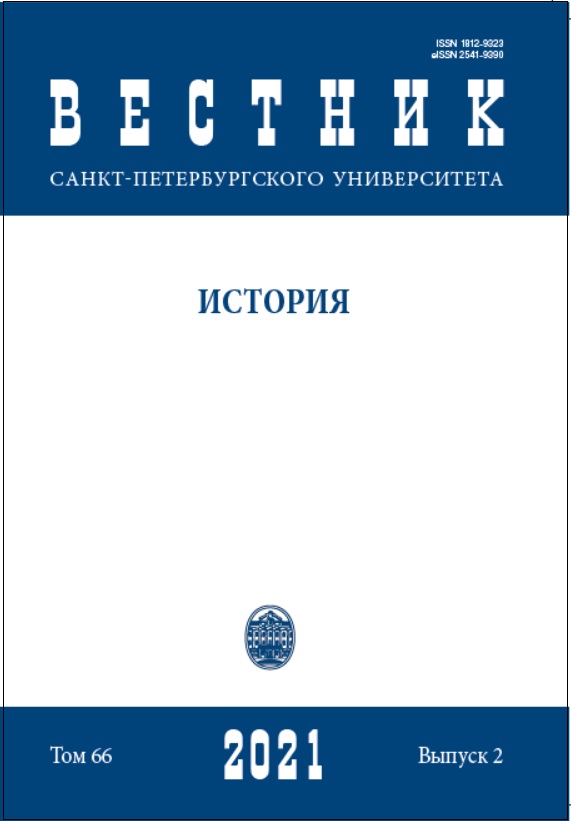The Spanish Republic’s Diplomatic Mission to Moscow in the times of Civil War. Part 2
DOI:
https://doi.org/10.21638/spbu02.2021.210Abstract
The Spanish Civil War played a unique role in the Soviet Union’s geo-political strategies in the second half of the 1930s. The conflict marked the first occasion that Moscow participated in a foreign war beyond its traditional spheres of influence. But Soviet involvement in the Spanish war went far beyond the sale of armor and aviation to the beleaguered Spanish Republic. While Moscow organized and supported the creation of the International Brigades, on the cultural front, the Soviets sought to roll out a broad program of propaganda, employing film, poster art and music to link the destinies of the Slavic and Hispanic peoples. If scholars have succeeded in recent years to rewrite the history of many components of Soviet participation in the Spanish Civil War, diplomatic relations between the Republic and Moscow remain an unexplored theme. This is the conclusion of a two-part article that mines declassified, unpublished official documents, as well as memoirs, newsreels, private letters and the press, to offer the first narrative history of the Republican embassy in Moscow. In part one, the diplomatic rapprochement between the USSR and Spain in 1933 was explored as a prelude to the exchange of ambassadors following the outbreak of the civil war in summer 1936. The posting of the young Spanish doctor Marcelino Pascua to a newly recreated Moscow embassy was then examined in detail, up to the end of summer 1937. In this second part, the successes, failures and denouement of Pascua’s mission are set against the backdrop of the Republic’s dwindling fortunes in the civil war.
Keywords:
Spain, USSR, Spanish Civil War, Joseph Stalin, Diplomacy, Europe 1918-1939, Moscow
Downloads
Downloads
Published
How to Cite
Issue
Section
License
Articles of "Vestnik of Saint Petersburg University. History" are open access distributed under the terms of the License Agreement with Saint Petersburg State University, which permits to the authors unrestricted distribution and self-archiving free of charge.





